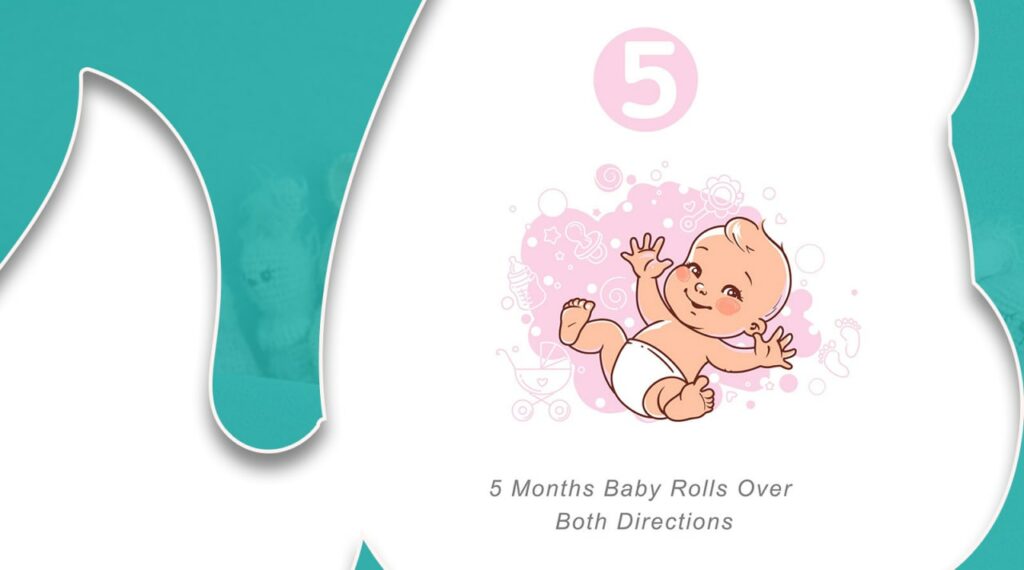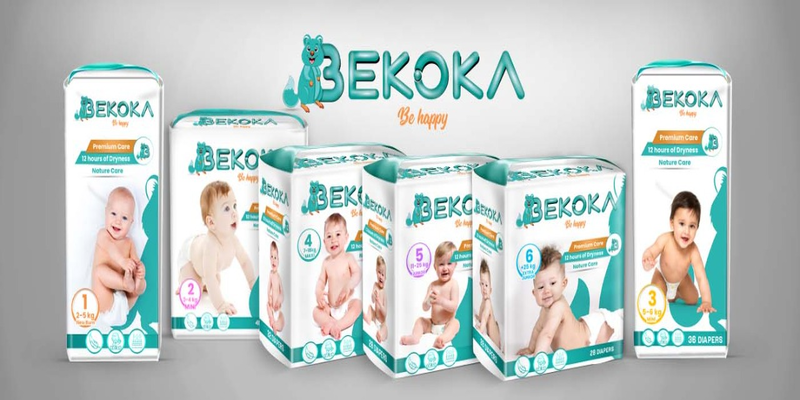Your five-month-old baby creates amazing smiles, laughter, and giggles. Your baby is now more active, energetic, and, of course, elegant. You also become more aware of his needs, such as when he feeds, sleeps at night, and naps during the day.
A healthy baby’s growth continues; its weight ranges between 6-9 kg, and its length ranges between 61-70 cm.
A five-month-old baby gains more control over his little body. He has already begun to show his abilities and his lovely babyhood innocence. The best part is that you can play Peek-a-Boo with him, and he can play with you by hiding his eyes with his little hands. He can also move his hands more freely and pass toys and small figures between his hands. In addition, he attempts to capture everything that comes to his attention on the spur of the moment.
Hearing and vision develop rapidly in a five-month-old baby. You have chosen a wonderful and beautiful name for your baby, and you have been calling him since he was born; now he can turn toward you when he hears his name. His vision has also improved over the last four months, as he can see for several meters and distinguish shapes, colors, and people from a distance.
Your five-month-old baby’s cognitive ability is also developing. Whereas he used to listen to your voice with delight and awe, he can now pronounce his sweet first words, such as mama and papa, and use them to express his needs rather than crying constantly.
A five-months-old baby sleeps
babies at this age still sleep more than they wake up. Babies this age require approximately 10 hours of sleep, plus or minus two hours at night, and four or more hours of sleep during the day, divided into two to three naps. Your baby should sleep on his back and should not have anything with him in the bed, including a toy or a bottle.
Five-month-old baby food
The mother must continue to breastfeed her baby, whether breastfeeding or formula-feeding because he still requires proper nutrition to grow bones and teeth. The number of feedings varies from one baby to another at this age, as some mothers begin to feed their babies.
Around this age, your pediatrician may advise you to introduce solid foods into your baby. If you really need to feed your baby, try one new food for a few days and then another for a few more days. This will help you determine if your baby has a food allergy to anyone or anything, as well as discover what flavors your baby enjoys.
You will notice that your five-month-old baby prefers sweet foods, but you should offer your baby a variety of foods. It can be daunting, but it’s worth a few tries before your baby starts enjoying a new food, so don’t give up after the first or second try if he refuses to eat or doesn’t like it.

What is the significance of a five-month-old baby touching different textures?
Some may wonder if touch is truly beneficial to babies! The advantages of touching things are numerous. Five-month-old baby’s enthusiasm for exploring his surroundings grows in all aspects. When he touches objects with different textures, such as toys, blankets, carpets, walls, water, or even tree leaves, he will enjoy and learn to distinguish between them. You can see if your baby enjoys touching the silky trim of his blanket or feeling the feel of the rug. Allow him to explore his surroundings alongside you.
Touch teaches babies about the world and society around them. And when you cuddle or kiss your baby, he learns that he is loved and safe. Remember how important it is for your baby to feel a gentle caress or kiss, and how holding and cuddling him has a magical effect on his behavior. Also, your baby is very happy when he feels a cool breeze on his cheek or a light splash of water.
How does a five-month-old baby sit?
In our society, mothers typically begin teaching their babies to sit around the fourth month, with some beginning as early as the fifth month. When should the baby be taught to sit?
Dear mother, you should be aware that your baby’s gross motor skills are critical when teaching him to sit. And that babies typically learn to sit between the ages of 4 and 7 months. To be successful in teaching your baby to sit, the muscles in the neck, shoulders, stomach, back, and hips must be strong. Additionally, when your baby is able to interact with his surroundings while sitting, he will begin to develop fine motor skills.
From the first weeks after his birth, the stage of preparing the baby for sitting begins by continuously massaging the muscles of his neck, hands, feet, and back. And that tummy time strengthens these muscles as well, so he tries to somersault and sit while in this shape and position.
This month, assist your baby in sitting by supporting him with pillows from the sides and back, as well as placing toys and sound effects around him to attract his attention. He remains in this state for several days before becoming accustomed to sitting upright by himself.
Furthermore, if you notice your baby wanting to sit, assist him in sitting for five to ten minutes several times a day. Alternatively, place him on your lap with his head and back resting on your chest, or place him in a special seat for babies of this age.
When can you worry about your five-month-old baby’s hearing and sight?
You should see your optometrist or pediatrician if you notice that your baby:
- He looks at you but doesn’t recognize you.
- I’m not interested in looking at books, drawings, games, or new pictures.
- Talk to your doctor if your baby’s eyes appear to be very sensitive to light and have redness.
- If you have a family history of eye disease or vision problems, you should mention that to your pediatrician.
You should also discuss any concerns or doubts you have about your baby’s hearing with your doctor. Hearing issues to inquire about include:
- Your baby does not respond to loud sounds or noises.
- Your baby responds to only some sounds, not all because he can only hear certain sounds from a specific direction.
- He does not laugh or babble.
Remember that early detection of any hearing or vision problems in your baby can lead to successful treatment, so be sure to notify your pediatrician of any concerns you have.
A five-month-old baby is like a toy that you can shape however you want, as well as a sponge that absorbs all kinds of information from the environment and the surrounding community. Work on developing your baby’s language begins this month, so make it productive and enjoyable.


